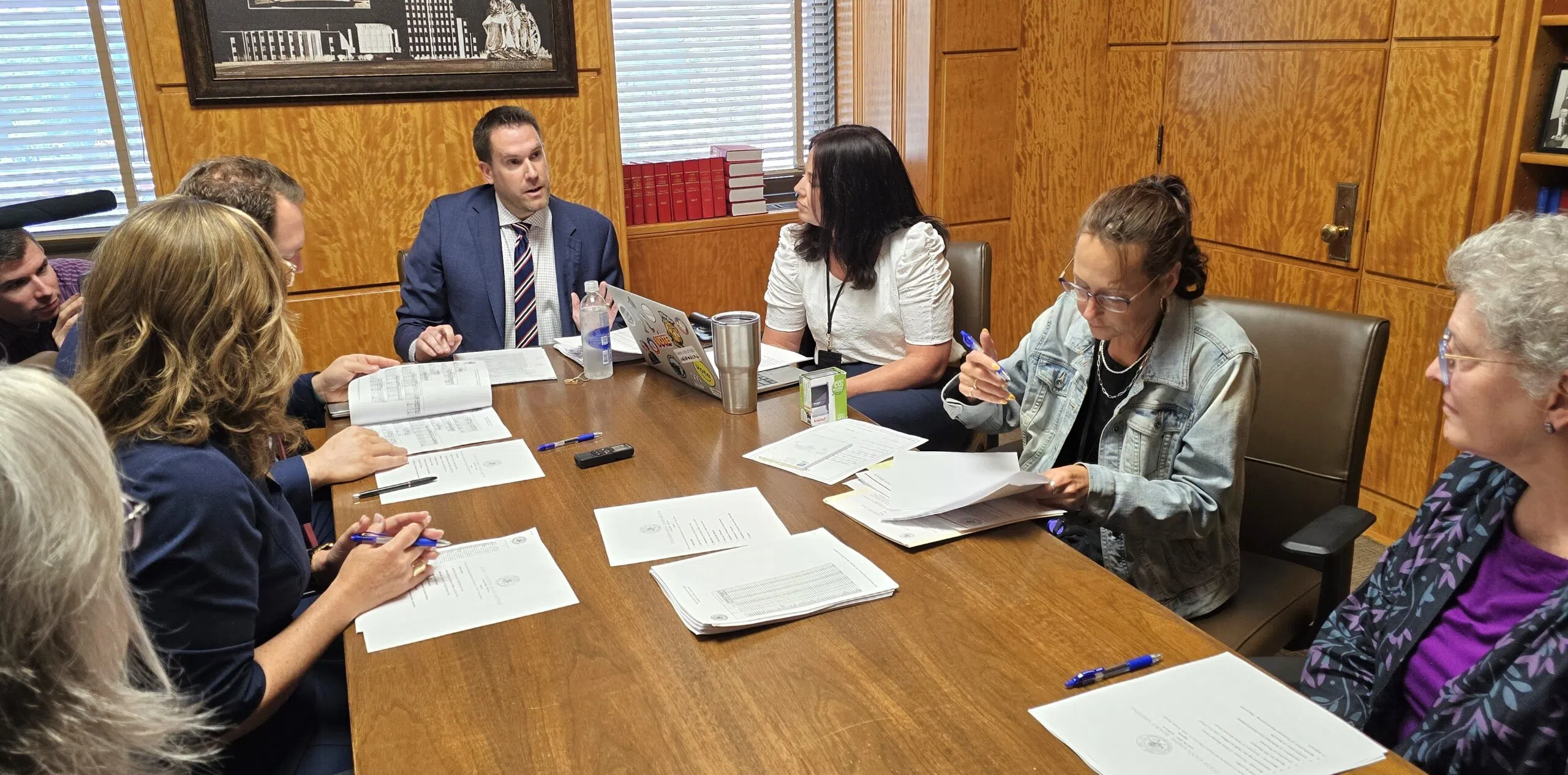
North Dakota Secretary of State Michael Howe, center, speaks during a meeting of the State Canvassing Board on June 26, 2024. (Michael Achterling/North Dakota Monitor)
BY: MICHAEL ACHTERLING
WATFORD CITY, N.D. (North Dakota Monitor) – One western North Dakota legislative race from the June 11 primary qualifies for a recount if the candidate demands one, state officials determined Wednesday.
The State Canvassing Board met Wednesday to certify the results of the election. The outcomes of statewide races did not change, but the board determined that Rep. Kelby Timmons, R-Watford City, could demand a recount.
No statewide races fell within the margin for an automatic recount, Secretary of State Michael Howe said.
Timmons lost the Republican nomination for District 26 House to challenger Roger Maki by 13 votes. The margin is close enough for Timmons to demand a recount, but it would be at his campaign’s expense.
Timmons will have until July 1 to decide. If a recount is ordered, county election officials will transmit the results of the recount by July 15.
Timmons did not respond to a text message Wednesday afternoon seeking comment.
Republicans running for state House in District 8 also had a close primary, but the absentee ballots that came in after Election Day did not change the outcome. Rep. Brandon Prichard, R-Bismarck, came in third and will not advance to November, with the final vote not qualifying for a demand recount.
The State Canvassing Board also finalized the vote totals submitted by county canvassing boards, which met Monday.
A total of 120,358 North Dakotans cast ballots during the 2024 primary for a 20% statewide election participation rate. In June 2020, the last presidential primary election year, more than 160,000 voters cast ballots for a participation rate of nearly 28%.
Vote-by-mail and absentee ballot returns decreased in 2024 to about 36,500 compared to the 2022 primary when nearly 41,400 voters cast absentee or vote-by-mail ballots.
In North Dakota, 36 counties have been authorized to use vote-by-mail by their county commissions, Howe said. Those counties send applications for mail-in ballots to every voter in the county and, if the voter sends back a completed application, a ballot is mailed out to them to return.
Early voting increased in 2024 in the eight counties that allowed early voting. In 2024, about 12,200 voters cast ballots before Election Day. In 2022, about 9,600 voters cast their ballots at early voting locations.
Howe praised election teams from across the state for conducting a smooth election.
“Everything we heard from all 53 counties went off, mostly, without a hitch,” Howe said.
He also said he will be talking to the U.S. Postal Service to ensure North Dakota ballots receive date stamps after multiple counties reported ballots arriving without postmarks. Howe said the decision on whether or not to accept the ballots without postage dates was up to county canvassing boards.
Howe said only one official complaint concerning election workers was filed during the 2024 primary involving an election judge in Stutsman County accused of not initialing multiple ballots. The incident is under investigation by the state Bureau of Criminal Investigation.
The State Canvassing Board consists of Howe, State Treasurer Thomas Beadle, North Dakota Supreme Court Clerk Petra Mandigo Hulm, and the state committee chairs of political parties on the ballot.




Comments